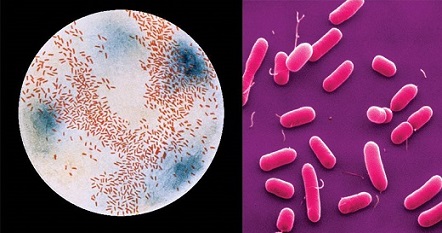BREAKING NEWS! Vancouver Health Authorities Warn About Outbreak Of Haemophilus Influenza Type B (Hib) Disease, A Bacterial Infection
Health News - Haemophilus Influenza Type B (Hib) Outbreak In Canada Dec 03, 2022 3 years, 2 months, 2 days, 17 minutes ago
Health News: Island Health also known as the Vancouver Island Health Authority, ie the publicly funded health care provider in the southwestern portion of the Canadian province of British Columbia has issued a warning about the outbreak of Haemophilus Influenza Type B (Hib) Disease in parts of Canada.
https://www.islandhealth.ca/sites/default/files/mho/newsletter/mho-newsletter-hib-outbreak.pdf

There have been eight lab-confirmed cases and one death of haemophilus influenzae type B or Hib in people in their 20s to 70s living in Victoria, Nanaimo and Parksville so far and many more suspected hospitalized cases of the disease.
Although cases were seen since late 2021, there was as sudden spike of cases in the last three weeks.
Despite its name, of Haemophilus Influenza Type B (Hib) Disease is a bacterial infection caused by the bacteria H. influenzae.
Hib can cause serious and life-threatening infections in people with underlying health conditions, including meningitis, an infection of the lining that covers the brain, and septicemia, an infection of the blood
The bacteria live in people’s nose and throat, and usually cause no harm. However, the bacteria can sometimes move to other parts of the body and cause infection.
Individuals spread H. influenzae, including Hib, to others through respiratory droplets. People who are infected spread the bacteria by coughing or sneezing, which creates small respiratory droplets that contain the bacteria. There are suspicions that the bacteria could be airborne as well.
Typically, the disease occurs mostly in children younger than 5 years old and adults 65 years or older and people who are immunocompromised are more susceptible to the disease including those with Sickle cell disease, Asplenia (no spleen), HIV infection, Antibody and complement deficiency syndromes and those with cancer requiring treatment with chemotherapy, radiation therapy, or bone marrow stem cell transplant.
However, Island Health noted in their report that most infected were in the age brackets that averaged 47 years of age and many were the homeless.
Medical researchers are again concerned if whether the bacteria species had mutated and is causing serious infections in young adults.
According to past
Health News coverages, infection typically starts suddenly with fever, vomiting, lethargy, confusion, headache and stiff neck.
H. influenzae, including Hib can cause pneumonia, blood stream or meningitis infections.
Symptoms of pneumonia usually include:
-Fever and chills
-Cough
-Shortness of breath or difficulty breathing
-Sweating
-Chest pain
-Headache
-Muscle pain or aches
-Excessive tiredness
Symptoms of bloodstream infection usually include:
-Fever and chills
-Excessive tiredness
-Pain i
n the belly
-Nausea with or without vomiting
-Diarrhea
-Anxiety
-Shortness of breath or difficulty breathing
-Altered mental status (confusion)
-A bloodstream infection from H. influenzae can occur with or without pneumonia.
Symptoms of meningitis typically include sudden onset of:
-Fever
-Headache
-Stiff neck
-Nausea with or without vomiting
-Photophobia (eyes being more sensitive to light)
-Altered mental status (confusion)
Individuals who suspect that they are infected are advised to contact their healthcare providers immediately.
Island Health is also encouraging parents and guardians to review their children’s vaccination history and to contact their public health unit if they require vaccination.
The British Columbia Centre for Disease Control says the disease usually infects children under age 5 however this time more adults are contracting the disease.
It was reported that before universal vaccinations began, it was the most common cause of bacterial meningitis in children ages two months to five.
The British Columbia Centre for Disease Control warned that for every 20 children who get sick from the bacterial infection, one will die.”
For more developments of this outbreak and the latest
Health News, keep on logging to Thailand Medical News.
